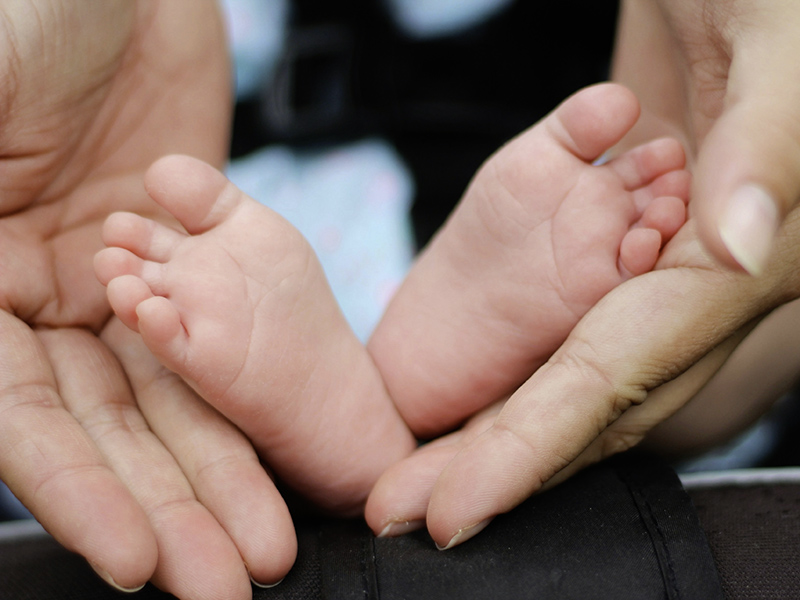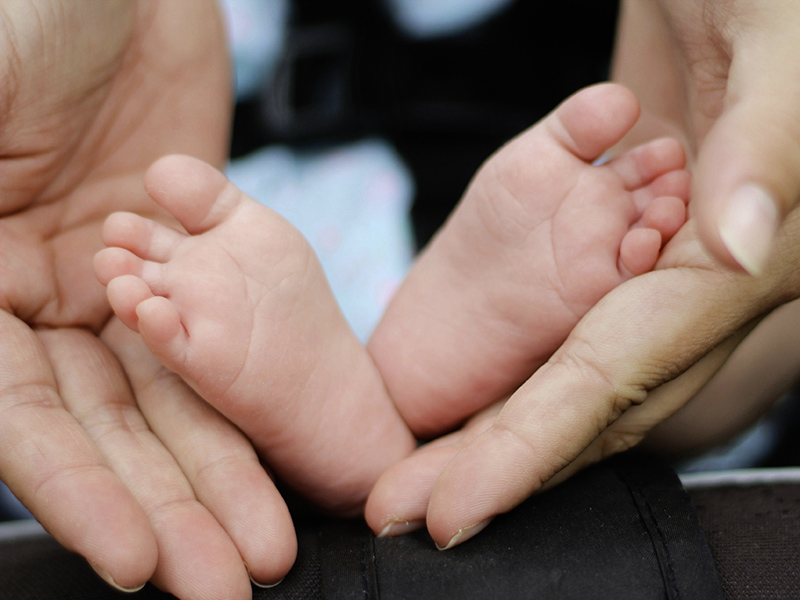 Photo: Bonnie Kittle via Unsplash
Photo: Bonnie Kittle via Unsplash
SUBSCRIBE TO OUR DAILY NEWSLETTER
Recently, Italy passed a law that criminalizes seeking surrogacy abroad, striking a blow to the avenues that gay men and infertile couples, both straight and LGBTQ, can pursue to become parents.
Surrogacy is already illegal in Italy. But Prime Minister Giorgia Meloni’s right-wing government, Brothers of Italy, has sought to punish Italians who pursue surrogacy in countries where the practice is legal, such as the United States.
The law appears to be the broadest prohibition passed by any Western nation, although domestic surrogacy is barred in other countries, like Germany and France, and is restricted in other nations, like the United Kingdom and Greece.
The law’s passage allows Meloni, a right-wing ideologue, to cater to her “neo-fascist” party’s socially conservative base — which opposes surrogacy and adoption by same-sex couples.
The move allows Meloni and other conservatives to claim they are defending the dignity of women. Opponents of surrogacy often argue that the practice is demeaning to and exploitative of women, especially poorer women who may be inclined to offer to serve as a surrogate in exchange for compensation, reports The New York Times.
Meloni — a single mother who never married the father of her daughter — hypocritically has campaigned on the importance of promoting “traditional family values.”
She and her fellow conservatives have railed against “gender ideology” and the “LGBT lobby” at political events, stating that children should only be raised in two-parent, heterosexual households.
Last year, Meloni’s interior minister ordered local governments to stop transcribing certificates of children born abroad through surrogacy, citing a court ruling — which is currently being challenged.
As a result, some children with same-sex parents have been denied access to citizenship, public schools, health care, and other benefits and services.
Following the interior minister’s decree, prosecutors across Italy began contesting the birth certificates of all children born to same-sex parents — regardless of whether they were conceived through surrogacy or not — with the aim of erasing the names of non-biological parents from those birth certificates.
Under the law, approved on an 84-58 vote in the Italian Senate last on October 16, Italians found to have sought out surrogates in other countries can be sentenced to two years in prison and a fine of 1 million euros, or about $1.08 million in U.S. dollars.
While some senators rejected assertions that the law was motivated in part by homophobia, others have been more open about their intent.
Senator Carolina Varchi, of the right-wing Brothers of Italy, for instance, wrote publicly in a Facebook post that banning surrogacy was part of a larger fight against “LGBT ideology.” Senator Elena Murelli, of the right-wing League party, called surrogacy a form of “child trade” akin to slavery and added, “You can’t buy children at the supermarket.”
Italian law already bars same-sex couples from adopting, either domestically or internationally. In addition to existing bans on domestic surrogacy, the ban on international surrogacy effectively cuts off the last avenue for many same-sex couples to form their own families.
“It is nature that decides this, not us,” Senator Susanna Campione, of the Brothers of Italy, said during debate, dismissing criticisms of the law. “This is a civilized law that safeguards the child but also the woman, since we believe that surrogacy essentially reduces a woman to a reproductive machine.”
Even prior to the law’s passage, some same-sex couples had begun considering whether to flee Italy for other countries, especially after the Meloni government refused to acknowledge their parental ties.
Now, with the law’s passage, families headed by same-sex couples would live in perpetual fear of being reported by anyone with anti-LGBTQ views, risking the possibility that the government might try to take children away from their parents and place them in state-run orphanages.
Critics of the law say it’s flawed, as anyone can report a family suspected of having had a child through surrogacy. Italian prosecutors would likely have difficulty accessing overseas medical records needed to prove such claims. Additionally, Italy would be prosecuting people for crimes committed in a country where their actions were legal. The law also targets a relatively small number of families in a country with an already low birthrate.
While most couples who use surrogacy are believed to be heterosexual, unless a woman is known to be infertile prior to returning with a baby, it will be gay male couples, who must use a third party to have children, who will likely be the most targeted under the law.
“The people who can’t hide this are gay couples,” Alessia Crocini, the head of Rainbow Families, a group that opposed the law, told The Washington Post. “This is about [targeting] gay fathers.”


